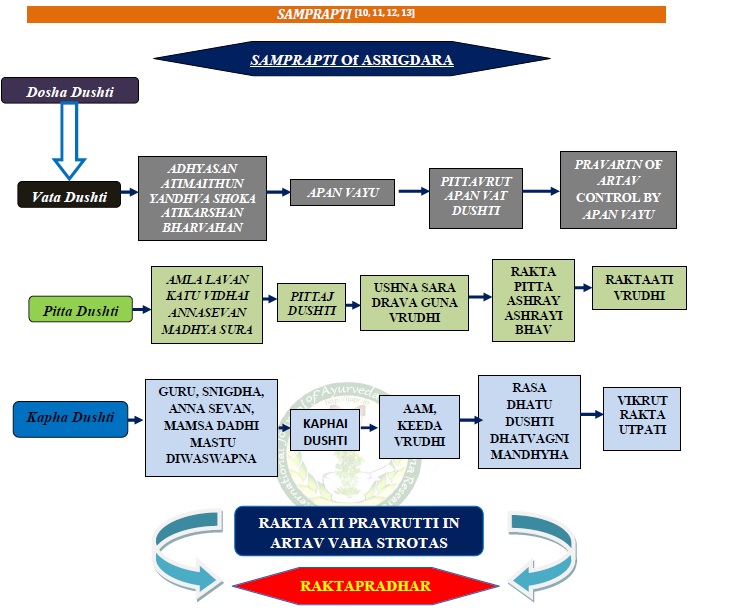Complete Review of Ayurvedic Management of Raktapradar w.s.r. to Brihatrayi and Laghutrayi
Abstract
Raktapradar in Ayurveda is characterized by excessive or prolonged menstruation with or without intermenstrual bleeding, which is one of the most common bleeding disorders in women. Excessive bleeding from uterus either at the time of menses or in intermenstrual time is considered as Asrigdara or Raktapradar in Ayurveda. Normal menstrual bleeding including ovulation or more specifically the organized sequence of endocrine signals that characterizes the ovulatory cycle, menses regularities, predictability & consistency. It is most basic concept that control the endometrial cycle, the volume & the duration of menstrual flow. Cyclic regular menstrual bleeding which is excessive in amount & duration considered as Menorrhagia. Raktapradar can be correlated with menorrhagia. As per modern science, menorrhagia is defined as cyclic regular bleeding which is excessive in amount (>80ml) or duration (>7 days) or both. It is considered as one of the commonest leading gynecological problem. In modern medicine haemostatic, analgesic and hormonal therapies are advised for Menorrhagia, which includes hormonal therapy, antiprostaglandins & antifibrinolytic agents. These have not proven their definitive efficacy in spite of high costs; their side effects have led to hormonal imbalances hence it is need of time to have an integrated and comprehensive therapeutic intervention in Ayurveda to prevent recurrence& would overcome the modern medicine limitations. Many herbal & herbo-mineral preparations, Shodhan & Shaman Chikits as per Rugnabal are mentioned in Ayurveda to cure Raktapradar and related symptoms which can be used as per Anubandha Dosha and Lakshana.
Downloads

Copyright (c) 2021 International Journal of Ayurveda and Pharma Research

This work is licensed under a Creative Commons Attribution-NonCommercial-ShareAlike 4.0 International License.






